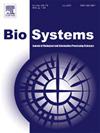跨(生命)科学的代码。
IF 1.9
4区 生物学
Q2 BIOLOGY
引用次数: 0
摘要
“代码”的概念包含不同的含义、意图和形式化。从数学和计算机科学到心理学和文化,这个术语变得不那么正式,更多样化,有时显得模棱两可。在生物学中,越来越多的密码引发了关于它们在进化、生物复杂性和能动性中的作用的争论,这只是其中的几个例子。在这里,一群跨学科的代码科学家试图在他们感兴趣的领域中捕捉代码研究的大局。在这篇横断面概述中,出现的共性可能会为统一的基于代码的生活理论铺平道路。编码是细胞过程、感知、认知和交流的基础。从生态系统到人类语言,代码影响着个人在群体中的行为、记忆、学习和参与文化实践的方式。攻击性、恐惧、愤怒、沮丧等情绪是调节相互交流和塑造个人体验的重要动机。以先天释放机制、刻板行为或原型形式存在的经验继承可能具有依赖于编码并影响我们有意识决策的系统发生和个体发生根源。不知不觉中,甚至我们的梦也会使用代码。未来,不同编码系统的合并,例如合成生物学和生成式人工智能,将把生物编码与机器逻辑和计算机语言融合在一起,以促进下一阶段的超人类主义。代码作为一种货币转换器出现在不同的生命系统和不同的科学学科之间。本文章由计算机程序翻译,如有差异,请以英文原文为准。
Codes across (life)sciences
The concept of “code” connotes different meanings, intentions, and formalizations. From mathematics and computer sciences to psychology and culture, the term becomes less formal, more diverse, and sometimes appears ambiguous. In biology a growing number of codes ignite a debate about their role in evolution, biocomplexity, and agency, to name just a few. Here, a transdisciplinary group of code scientists attempts to capture the big picture of code research across their fields of interest. In this cross-sectional overview commonalities emerge that may pave the way towards a unified theory of life-based-on-codes. Codes underly cellular processes, perception, cognition, and communication. From ecosystems to human language, codes influence how individuals behave in groups, memorize, learn, and take part in cultural practices. Emotions like aggression, fear, anger, frustration, are important motivators of behaviour modulating mutual communication and sculpting individual experience. The inheritance of experience in form of innate release mechanisms, stereotyped behaviour, or archetypes may have phylogenetic and ontogenetic roots that rely on codes and impact our conscious decision making. Unconsciously, even our dreams draw on codes. In the future, conflation of different coding systems, e.g., from synthetic biology and generative artificial intelligence, will merge biological codes with machine logic and computer language to promote next-level transhumanism. Codes emerge as a currency converter between systems of life and between different scientific disciplines.
求助全文
通过发布文献求助,成功后即可免费获取论文全文。
去求助
来源期刊

Biosystems
生物-生物学
CiteScore
3.70
自引率
18.80%
发文量
129
审稿时长
34 days
期刊介绍:
BioSystems encourages experimental, computational, and theoretical articles that link biology, evolutionary thinking, and the information processing sciences. The link areas form a circle that encompasses the fundamental nature of biological information processing, computational modeling of complex biological systems, evolutionary models of computation, the application of biological principles to the design of novel computing systems, and the use of biomolecular materials to synthesize artificial systems that capture essential principles of natural biological information processing.
 求助内容:
求助内容: 应助结果提醒方式:
应助结果提醒方式:


